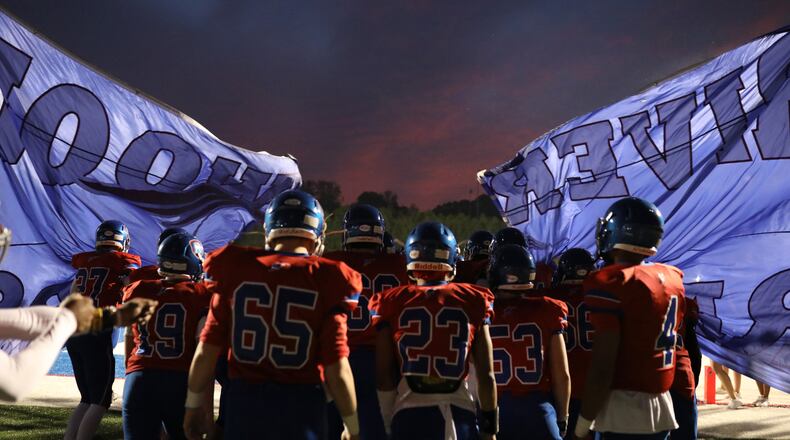Robin Hines of the Georgia High School Association remains hopeful for an early-June return of sports activities, which would include conditioning for football and tryouts for softball, volleyball and cheerleading.
But the GHSA’s executive director said in an interview Wednesday that it’s still too soon to make that call. The course of COVID-19 infections and deaths is one among many data that will factor into that decision, Hines said.
“What happens tomorrow if there’s a huge spike in COVID cases? We’re certainly not going to open up,” Hines said. “We can’t make a decision (to resume sports) based on information we don’t have yet. We’re trying to be ready for every scenario. We want to start as quickly as we can if it’s safe and within what the governor is saying.
“We’re gathering information from many sources, from the national (high school) federation to our sports-medicine advisory committee. If we feel it’s safe enough to have a measured return to sports activities, that’s what we’ll do.”
Hines stressed the word “measured” when describing the sports’ return. Even with a June start, it would not be business as usual in the weight rooms or practice fields, he said.
“We’re not going to one day say, ‘June 1, all right, coaches, have at it,’ and let them bring in 100 kids in one large group,” Hines said. “We want to provide guidelines. It’s going to be more restrictive, like X-amount of kids for 45 minutes, 10-15 minutes between the next group so they can wipe down equipment and disinfect; dress at home, shower at home, make sure social distancing can be practiced.”
The GHSA normally leaves summer activities, which are voluntary, largely to the schools and coaching staffs, but Hines noted these are unique times. The GHSA effectively ended spring sports March 12, although hope lingered for a resumption until April 2, when the GHSA officially canceled them. That came as Gov. Brian Kemp closed public schools for the remainder of the school year.
Hines said that Kemp’s guidance and timetable would remain prominent in any GHSA decision.
“Once we get through the governor’s mandate for closing schools, we’ll take a look at all the information available to us and move forward,” Hines said. “Hopefully and prayerfully, that will be the first of June. But I don’t have a crystal ball. I have an idea, but I want to validate that through medical professionals and make sure we’re on the same page.”
Hines added: “We’re not going to be less restrictive than what the governor’s guidelines are because we trust what he says and want to follow what he says. He’s got a lot of experts he’s consulted, and he’s done a great job.”
Hines acknowledged that some school systems might be more restrictive than the governor, keeping their schools closed or students out of classrooms longer than others, potentially putting their sports teams and athletes at a competitive disadvantage.
Hines indicated that the GHSA would not delay summer workouts to level that playing field. The first date that football teams can practice — July 27 — could be trickier, as that is determined by GHSA bylaws.
“I think the membership as a whole and the trustees will prefer applying the same rules to everyone,” said Hines, but he added: “Summer workouts are voluntary and always have been. Student-athletes and their families would decide if they want to participate, and schools also can make that decision.”
About the Author
The Latest
Featured

